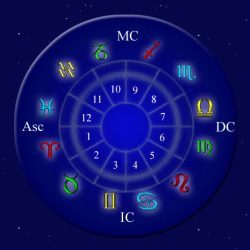by Joseph Tierney
Your probably reading this article because you use Google Adwords to bring traffic to your website, or your a click fraudster yourself, wanting to see what kind of information I have for you. Most of you click fraudsters will think that I have no idea what I am talking about, and that I do not know your methods. Well, trust me buddy, I KNOW ALL ABOUT YOU AND WHAT YOU DO.
If you are new to the click fraud scene, here is an example:
1. Scumbag puts Google Adsense ads on his website.
Your Ad Here
2. The scumbag then proceeds to cheat Google Adsense by creating false clickthroughs and impressions, in return earning him a pretty nice profit, because he isn’t even working on his website, just generating false traffic.
All of you people that run campaigns through Google Adwords are thinking, “This guy has no idea what he is talking about, Google has everything under control and they even state so publicly!”
WOW! What kind of pay per click company would admit that they DO NOT have click fraud under control? I wonder what would happen to their business immediately following that statement.
Estimates say that nearly 20% of all clicks for Adsense are illegitimate. In my honest opinion I believe this number to be around 30-35% from some of the things I have seen.
How Are They Doing It?
There are a number of ways that people are cheating, including the ‘click groups’ from India that click on your ads for you and create big pay checks as long as you pay them their $0.50 an hour so they can buy bread for their family.
But I’m going to show you the technical way that Google Adsense is cheated, not poor people clicking ads. I’m talking about extremely smart programmers that create hitbots to cheat Adsense. And, no, I’m not talking about that piece of garbage ‘CACA’ or Clicking Agent that you find on Google. I am talking about Private programs and scripts that are only used by private groups.
How Do These Scripts Get Away Undetected?
Simple, let’s actually take a look at Google’s click fraud protection (This is what I have summed up, I seriously don’t believe they have anything other protection because people are still cheating using these methods as you read this article.)
If you actually take a look at Google’s Adsense code when it is on your webpage you will find the URL that is used to retrieve ads. (Right-Clck your ad Iframe and click ‘View Page Information’ or something similar.)
Here is an example of the URL that you will find:
http://pagead2.googlesyndication.com/pagead/ads?client=
ca-pub-2521202633232871&dt=1124847235453&lmt= 1124631699&format=468x60_as&output=html&url=
http%3A%2F%2Fwww.yoursite.com%2F&color_bg=
ECF8FF&color_text=000000&color_link=0033FF_url=
0033FF&color_border=DDAAAA&cc=59&u_h=768&u_w=1024&u_ah=
738&u_aw=1024&u_cd=32&u_tz=-240&u_java=true
Now let’s decode this up a little bit, shall we?
client=ca-pub-2521202633232871 – Your client code, this tells Google who to assign the click-through money to.
dt=1124847235453 – Javascript, if you use the command google_date = new Date(); document.write(google_date.getTime())— Which generates 1124847235453.
This shows you the number of milliseconds since midnite January 1, 1970. This is what seems to be Google’s biggest automated proxy clicker fraud prevention. Doesn’t seem too hard to generate with 2 lines of code now does it?
lmt=1124631699 – The last time your webpage was updated. LMT stands for Last Modified Time, pretty easy Javascript to generate this one too – document.write(document.lastModified); — Which generates 1124631699.
(Notice I’m skipping a bunch, that’s because they are just showing the type of ad, colors, and size that you are using.)
cc=59 – Seems to be some random number based on the screen width, height, and color scheme. I’ve seen this number go from 20 all the way up to 400. I’m sure they don’t use this to reliably track click fraud.
u_h=768 – Height of your screen settings.
u_w=1024 – Width of your screen settings.
u_ah=738 – Your available screen height.
u_aw=1024 – Your available screen width.
u_cd=32 – Color scheme on windows, e.g. 32-bit.
u_tz=-240 – Your monitor refresh rate or something else that isn’t important, I’ve never seen it not -240.
u_java=true – Just seeing if you have java enabled.
There are some other variables that are sometimes in the URL such as ‘u_his=’ this means how many pages you have visited since you started up your browser. There’s also some MIME type checks and how many plugins you have installed, but these variables come up very rarely. I think they are only meant for Netscape/Firefox browsers.
Now that we have ‘decoded’ the supposed unbeatable Google Adsense code, what do you think about click fraud? You still think it is rare?
After randomizing all the data and sending an automated query to their Adsense URL, all the scumbag has to do is parse out all of Google’s click URL’s and click one of them, giving him a click through. This can all be easily faked with even a Visual Basic program. A newbie programmer could in-fact cheat Google Adsense without much knowledge.
They beat the javascript code detection but doesn’t Google use cookies so they can’t do this?
No, Google does not use cookies for Adsense.
Well what about IP-tracking? Someone can’t have that many proxies!
There are click groups that leave these programs running on their computer. They each randomly click each other’s URL’s automatically. The person running the program doesn’t even have to do anything, but he is still contributing to the success of their group and himself.
Does that sound too far-fetched? I am telling you that there are click groups that do this now and have been since the old Linkshare PPC days in 1999. Yes, if you were an advertiser on Linkshare back around 1999-2002, you got raped.
And that isn’t all. I have read on the internet that there is currently over 100,000 people infected in the United States alone with trojan proxy servers. These proxy servers run on random ports so that Google can’t just do a simple port 8080 or 80 check on it to see if it’s a proxy. The majority of these proxy servers are used for credit card fraud, but a lot of them are also used to cheat Google Adsense and other pay per click programs. These proxies are at-home users that look like normal dial-up, cable, and dsl users from all across the world, but mainly United States. There is no way to prove that they are a proxy.
Random User-Agent strings is another tactic that is often used by click fraudsters. This makes Google think that a lot of different browsers are clicking the links, just keeping them further from finding out the truth.
On a side note, you may be thinking that the new Yahoo! pay per click program may be the way to go. I checked into their protection and guess what? They are only using ONE of Google’s protections and that is the Javascript GetTime. They are still in Beta though and this may change, but who knows?
To the cheaters: The benefits of cheating are short. Eventually you will be caught for what you are doing and maybe even sued by Google. There is a ton of money to be made legally with Adsense and I suggest that you stop cheating. Who am I to tell you to stop? I use to be one of you! Back when I was 13-14 I was making programs like the ones you guys are using now. You guys probably used one of my programs at one time. I am happy to say that those days of mine are all in the past now, and I am making a good amount of money legally with Adsense and other affiliate programs. Work hard guys and you will reap the benefits 100 times what you make cheating.
To the advertisers: You people that use Google Adwords now see that it is actually not very hard to cheat you out of your money, so be careful and make sure that you use a click fraud protection script such as ClickDefense. To lower most of your click fraud, just don’t put your ads in the Content Network, only stay on Google’s sponsored search results. Only Google gets paid when someone clicks the search results sponsored ads and nobody wants to cheat to make Google anymore money do they? Check the stock, it’s currently at 279.58 a share.
To summarize my article I just want to state that no one should use this information for cheating Adsense and I am not responsible for your actions if you choose to do so. You will be caught because Google will evolve and get smarter, eventually.
About This Author: Joseph Tierney is 2005 high school graduate, internet marketer, and surfer. He runs the Auction Fraud Protection website – http://www.stopauctionfraud.com/
Article Source – http://www.leadarticles.com/

